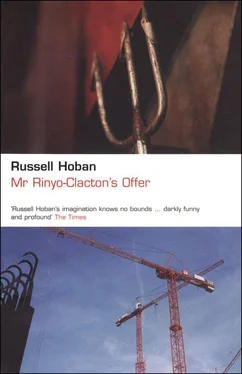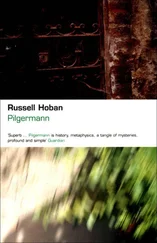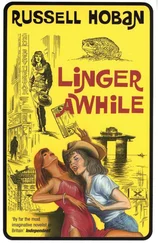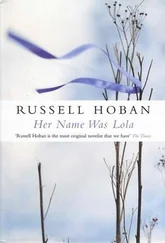‘Are you dead certain this was your son?’
‘I have many doubts about many things, Jonathan, but when I know something I know it.’
‘And now he’s dead.’
‘Now he’s dead, yes. But the past doesn’t die.’
I had met Mr Rinyo-Clacton on a Monday. On Thursday of the following week he was dead. Eleven days. That whole thing with him from beginning to end, that’s all it was: eleven days. Well, no, actually. Because things don’t end; they just accumulate. It was only three months ago that he died; it seems longer.
That Thursday evening after identifying the body Katerina and I bought a bottle of Glenfiddich, went to her flat and drank more than half of it. ‘What about the funeral?’ I said. ‘The phone’s ex-directory but maybe if I go round to the flat Desmond will tell me.’
‘Wait,’ she said.
On Friday the papers reported the death and said that the name was thought to be an alias but there was no mention of a funeral.
Saturday morning a motorbike messenger brought me a parcel wrapped in brown paper. For a weird moment I wondered if it might be Mr Rinyo-Clacton’s head. When I’d undone the paper and the bubble-wrap I found the Rinyo-Clacton pot I’d seen in his bedroom. ‘What are we all but infirm vessels?’ I said.
‘Did you say something?’ said Serafina from the kitchen.
‘Not really.’ The pot had no lid but was covered with brown paper secured by masking tape. Taped to the paper was an envelope on which was written, in neat block letters, NO FUNERAL. In the envelope were the torn pieces of the document that began:
I, Jonathan Fitch, being of sound mind and with my faculties unimpaired, not under duress or the influence of any drugs, hereby assign to T. Rinyo-Clacton …
I took the pot in both hands and shook it gently. The contents shifted with a soft and whispery sound. I removed the brown paper and saw, as I had expected, greyish-white ashes. Serafina came over to have a look. ‘Is that who I think it is?’ she said.
‘Probably.’
‘Give it to Katerina — she’s his mother after all.’
I rang up Katerina, and that evening while Serafina was at the Vegemania we went to the Hungerford Bridge. The weather was wet and blowy; we were both wearing anoraks, and the rain pattering on my hood made me feel roofed and indoors. To the man huddled in a blanket at the near end I gave a twenty-pound note. ‘Compliments of Mr Rinyo-Clacton,’ I said. He gave me a suspicious look but thanked me.
Traffic was heavy on the bridge: people full of Saturday night heading for their culture fix on the South Bank. Katerina and I walked through and around puddles to the bay where Mr Rinyo-Clacton and I had stood looking down at the dark river. ‘Shining golden goblets,’ he had said, ‘but the wine is black water; that’s all there is, now and for ever.’
The wind had died down; the air was calm and still; the view sparkled through the rain. To our right the Festival Hall beckoned, Come! To our left Charing Cross Station signalled, Go!
I looked at Katerina. ‘Do you want to say anything?’
She shook her head.
I held the pot out over the water. ‘That’s all there is,’ I said, and turned it upside-down. Just then there was a sudden gust that blew some of the ashes back on to Katerina and me. I let go of the pot, watched it fall, had almost the sensation of falling with it, saw and heard the splash as it filled and sank. ‘Now and for ever,’ I said as I wiped the ashes off my face and anorak.
38. The Kakemono of Kwashin Koji
Now I’ll never know what Mr Rinyo-Clacton wanted to talk about that Thursday. Had he had a change of heart? Was he going to call the whole thing off? Was he perhaps terminally ill and wanted to die with a clear conscience? Or had he in fact been writing a novel and had decided to abandon his researches and perhaps the writing as well? Had he meant this meeting to be our last conversation and he would then step out of my life or was it to be the last time for us to talk and our only meeting after that would be at the time of my death?
When I finally did go around to his flat there was a new occupant and no forwarding address for Desmond; he probably wouldn’t have told me anything anyhow. And actually I don’t need to know more of Mr Rinyo-Clacton’s personal history than I do now.
My mind sometimes makes up little rhymes that it sings to itself; it’s singing one now that seems to have reached the top of the mental charts:
No more action
with Rinyo-Claction.
Which is not strictly true; Mr Rinyo-Clacton has departed the scene but the action continues: everything that happened between us replays itself on a loop of memory but I’m not as tortured by it as I used to be; I know now how fragile are the walls that keep out chaos — there are many weak spots and there will always be something or someone waiting to break in. Maybe I can reinforce those weak spots with the rock I’m leaving behind as I carve myself out and shape my destiny.
Having written this, I found that I wanted it to go out into the world. I sent it to Derek Engel with a note recalling our telephone conversation and I was surprised to receive from him, after a two-month wait, an offer to publish. ‘Who knows?’ he said. ‘You may well have backed into a new career.’ The advance was modest but so am I, and I’m hanging on to my day job yet awhile.
Katerina insisted on returning the money I’d given her; she simply wanted no part of it. ‘I have had enough’, she said, ‘of the father and the son.’ So the million remained mostly intact, less the expenses of the trip to Paris and various incidentals.
Serafina and I both tested negative for HIV at the John Hunter Clinic and the future lay before us, more or less. All of a sudden, like a rug being pulled out from under us, the drama was gone from our lives and we’ve had to deal with the ordinary business of getting from one day to the next.
When I mentioned the restaurant idea again Serafina fixed me with her bleakest northern-strand stare. ‘Jonathan,’ she said, ‘do you mean to tell me that you expect to build some kind of a future on money from that man?’
‘Well,’ I said, ‘a good thing can come out of a bad thing. Can’t it?’
‘Jonathan, as far as I am concerned, that money is the fruit of the poison tree, and if we’re going to go on together it will have to be without that million.’
‘That’s twice you’ve called me Jonathan instead of Jonno. Do you want to go on together?’
The phone rang. ‘Hello, Jonathan, this is Jim Reilly at Morgenstern. I hope you’re well?’
‘Yes, I’m all right, thanks. You?’
‘Very well, thank you. I haven’t heard from you for a while and I was wondering if we should meet so we can go on to the next stage of your financial planning and your restaurant thoughts.’
Listening numbly to the worods, the woordos coming out of my mouth, I told Jim that my situation had changed and I was no longer in a position to go ahead with those plans. He said, well of course these things happened; he knew how it was and would be delighted to meet with me again whenever the time seemed right. I rang off, wondering, now that I was back in the real world, what Morgenstern’s note of charges would be for my brief fling as a man with enough money to require financial advice. Serafina hadn’t answered my question. I looked at her and said wordlessly, with my hands, ‘Well?’
‘Oh, all right. You’re rotten but I suppose most men are, and I’ve already put a substantial amount of time into you, so I guess we might as well stay together.’
Читать дальше












